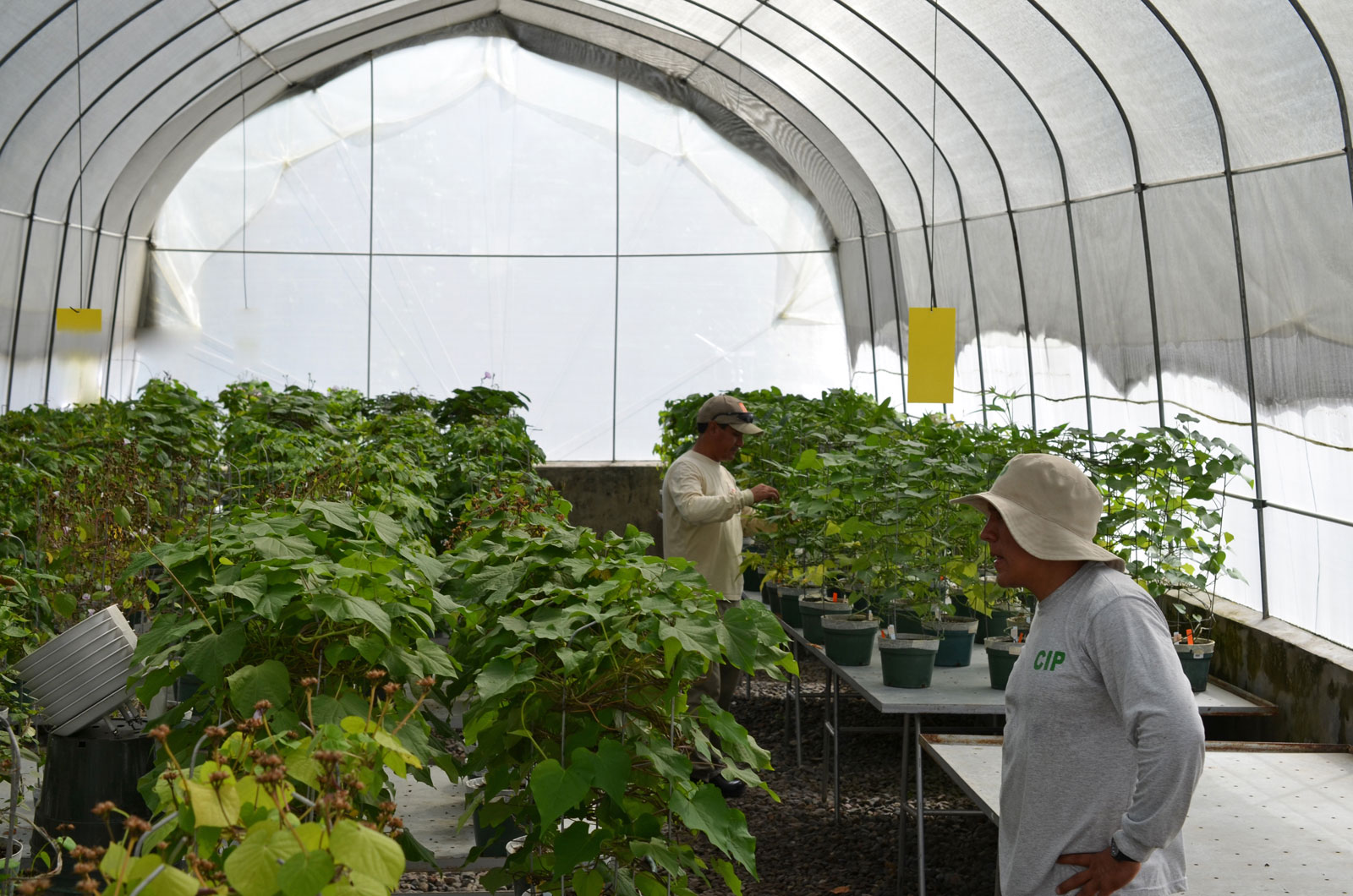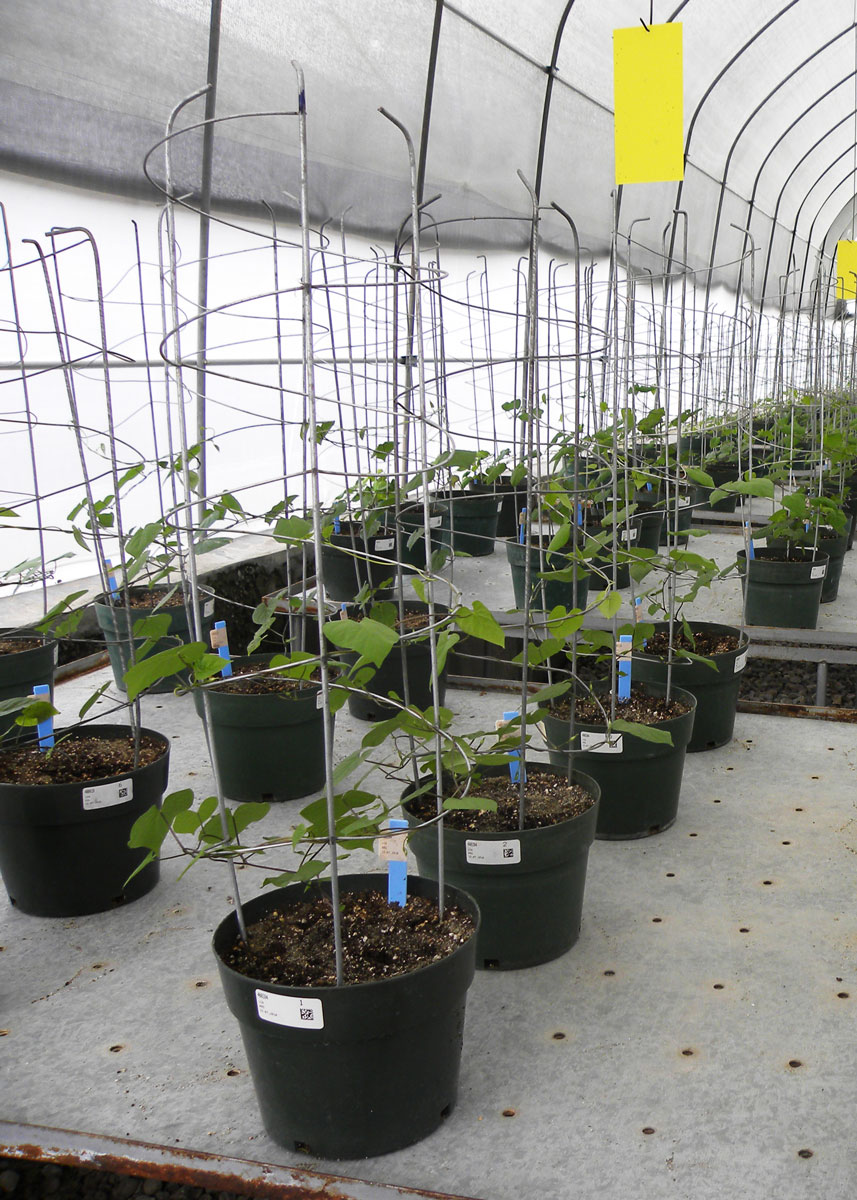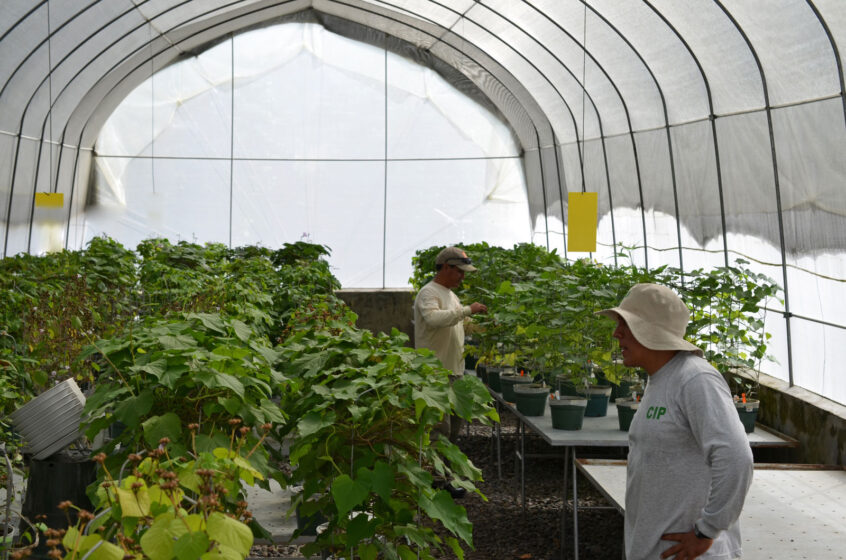Sweetpotato’s wild relatives may help the crop adapt to climate change
At least some plants have genes for a certain kind of “memory.” A young plant exposed to a stress (like drought) may be better prepared for similar trouble later in life. Researchers in Peru withheld irrigation water to induce a memory of drought in 59 accessions of the sweetpotato’s closest wild relatives. Later on, some of these wild sweetpotato relatives responded to drought through different mechanisms, such as producing more green leaf area, keeping their leaves alive for longer or keeping their leaves cool by opening their stomata (a bit like sweating) although this mechanism deserves further research. If wild sweetpotato relatives can remember how to adapt to stress, breeders may be able to use these traits to help the cultivated sweetpotato resist drought and adapt to climate change.

Older plants have learned to adapt to drought. F. Guerrero-Zurita (CIP)

An artificial drought induces a kind of memory in young relatives of the sweetpotato. F. Guerrero-Zurita (CIP)
SHARE THIS

